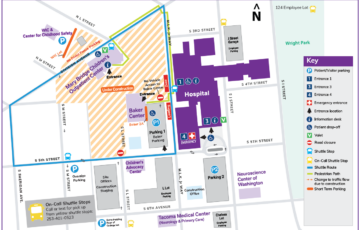
Driving is a significant milestone during adolescence. It is often seen as a passage into the adult world and offers teenagers their first feeling of true independence! However, with that liberty comes a great responsibility and potential danger. As adults, we may feel that driving becomes almost second-nature, but it is actually a very complex, multitasking activity that requires your constant attention and anticipation about the other drivers around you. When you are distracted behind the wheel, research has shown that your reaction times are slowed and you miss more visual clues, both situations can lead to a crash.
Washington State enacted a distracted driving law that went into effect July 23, 2017. It is now illegal to hold a personal device, use a hand or finger to compose, send, read, view, access, browse, transmit, save, or retrieve email, text messages, instant messages, photographs, or other electronic data, or watch videos. The consequences of breaking the law include monetary fines, reporting infractions to your insurance company, and increasing fines with subsequent offenses.
According to AAA teen driver website, a teen driver’s crash risk increases up to 44% with just one teen passenger. A recent study also found that 58% of crashes involving a teen driver were due to distraction. Furthermore, up to 70% of teens admit to talking on their phone while driving and 50% admit to reading a text.
As a parent, you have a great influence over your teen’s driving behavior. One way that you can help every driver in your family stay distraction free is to make a pledge and sign a teen-parent driving agreement. Another great way is to be an excellent example! Some simple tips are to:
1. Turn your electronic device off, put it in airplane mode, or place it somewhere where you won’t be tempted to reach for it.
2. Prepare for your drive: check traffic, adjust mirrors, and finish eating!
3. Enlist passengers to help with navigation and changing the music.
4. Store loose items.
Remember that although it may seem that your teen doesn’t listen to what you say most of the time, I can assure you that they are watching what you do! Help make your family and our community safer behind the wheel.
Related Stories



